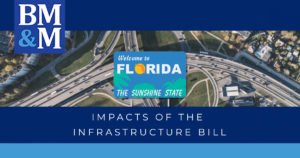
The cars in a race do not simply just ‘start’. There is a good deal a preliminary activity before the race begins. 1 The track is studied. The vehicles are prepared – tires inflated and installed, oil and fuel filled, belts and bolts tightened, starting system and transmission adjusted, communications system tested, drivers’ uniforms examined, and race strategy reviewed with the drivers and their pit crews. All using checklists based upon a history of prior races in multiple racetracks and weather conditions.
The same should likewise occur as businesses prepare to emerge from the Coronavirus/COVID-19 pandemic quarantine and shutdown. 2 What are the themes of re-opening activities?
- Paying attention to current facts
- Comparing the current facts to the knowledge-base acquired from similar and divergent circumstances
- Preparing in all operational sectors
- Using checklists
- Being flexible to changing conditions
- Tailoring contracts to address what can be predicted or at least reasonably foreseen
- Obtaining insurance to further ‘cover the bases’
Over the long-run of this series of articles, those themes should by now be quite familiar. Why? Because they all point to the positive value to businesses of proactive risk management. By engaging in those sorts of intentional activities a business can focus its material, financial, and human resources on its core business, and let its risk management activities work continuously, and ‘silently’, in the background, akin to a computer’s properly updated and secured operating system.
As businesses – whether they involve the creating of goods, the delivery of services, or hybrids of both (think of restaurants which prepare and serve food or car or bicycle repair shops – ready themselves to re-open their doors, they would be well put to do so consciously, rationally, on a data-basis, and not randomly. And in advance, while there is time to think. Meaning now.
By, for example:
- Studying what went well (and did not) before the shutdown
- Determining what material and financial resources (and alternatives) are already or will be available at a reasonable cost
- Likewise, determining the human resources who will return
- Analyzing the costs of those re-engaged resources
- Studying technical innovations and market niches in the field which can be imported into an enterprise’s operations
- Inquiring of the traditional customers about who will return
- Learning about newly applicable laws, rules, and regulations
- Putting all of that into writing
The business’ principals do not have to – and, frankly, should not – perform those ‘re-upping’ functions in a solitary vacuum. They should do so with the involvement of interested internal and external stakeholders such as employees, contractors, vendors, regulators, attorneys, accountants, insurers, financial advisors…and end-user consumers of the companies’ goods and services.
And there is one more to add – engaging in succession planning. By now, ‘we’ should understand that the same people operating a business will not do so in perpetuity.
- Who will take over, when the founders depart by any number of causes?
- Will the business pass to family? To employees? To third-parties?
- Will equity or assets transfer?
- Privately or publicly?
- Will the enterprise remain as a whole? Or will it be divided into separate parts?
- Will financing be used to accomplish those measures? Will the financing require collateralization of the business in its entirety or of discrete real or personal property assets?
Plus even one more. Updating a company’s core documents to reflect the updates and changes coming from the review and planning process described above. Such as (meaning this list is not exclusive of other documents) articles of incorporation or organization (for limited liability companies), partnership agreements, shareholder agreements, bylaws, shareholder agreements, estate plans (such as personal wills and trusts), insurance policies, business plans (including mission/vision/values), policies/practices/procedures manuals, employee benefits documents (including health insurance), communications plans…and, risk management plans.
And, yes, there is even one more last point. Being sure to actually implement the above. Otherwise, all those efforts were for naught.
So ‘ladies and gentlemen’, start your engines. 3 The race is about to begin. Be sure to be in it. By starting the pre-race activities. Now.
For information about Bogin, Munns & Munns’ own response to Coronavirus readiness.
Note: Citations are given to third-party sources to respect the original authors’ copyrights.
1 This writer is by no means a car racing expert. (Actually, I am better versed in thoroughbred horse racing.) Yet I do enjoy watching some of the traditional races such as those involving Indy Cars and Formula 1. Now, I am fortunate to work with a Legal Assistant who, with her husband, is particularly knowledgeable about car racing; and I listen – carefully.
2 These topics have been the subjects of several prior articles. See New Safety Training Courses Are Available For Florida’s Businesses, Preparing For That Which Cannot Be Prepared,
Florida Prepares To Re-Open On May 4, 2020, https://www.boginmunns.com/business-stops-in-its-tracks/, Another Timely Coronavirus/Covid-19 Update,
Additional Resources for Florida’s Businesses, A brief note for Florida’s individuals, families, and businesses about extensions, Coronavirus/COVID-19 pandemic state, The Paycheck Protection Program, Resources for Florida’s businesses, families, and individuals, Do You Count?, Life in Times of Coronavirus.
3 Or, if one prefers, RIDERS UP!.
– For more information, call Philip N. Kabler of the Gainesville, FL office of Bogin, Munns & Munns at 352.332.7688, where he practices in the areas of business, banking, real estate, and equine law. He has taught business and real estate law courses at the University of Florida Warrington College of Business Administration and Levin College of Law and is the President-Elect of the Eighth Judicial Circuit Bar Association.
NOTICE: The article above is not intended to serve as legal advice, and you should not rely on it as such. It is offered only as general information. You should consult with a duly licensed attorney regarding your Florida legal matter, as every situation is unique. Please know that merely reading this article, subscribing to this blog, or otherwise contacting Bogin, Munns & Munns does not establish an attorney-client relationship with our firm. Should you seek legal representation from Bogin, Munns & Munns, any such representation must first be agreed to by the firm and confirmed in a written agreement.





